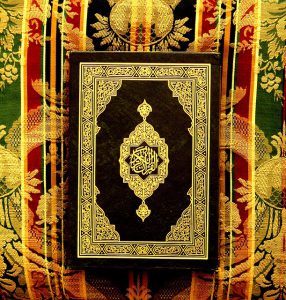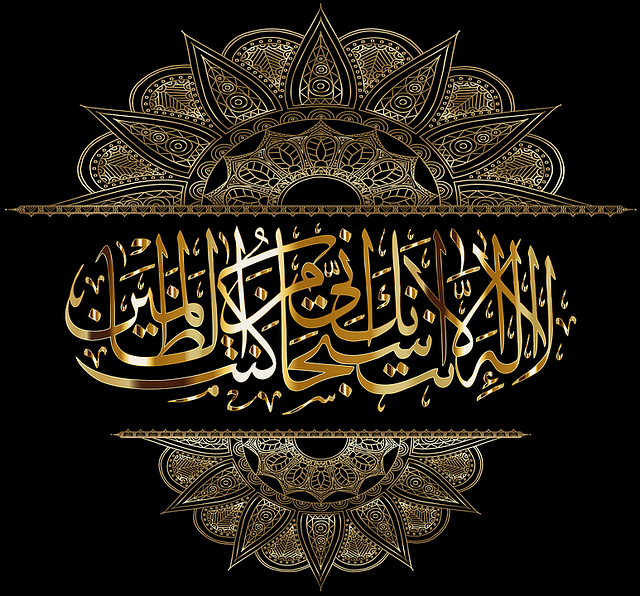What is Islam about can simply be answered by defining what the actual word means. The word Islam means peace, and also comes from the word “istaslama” meaning ‘surrender’ or ‘submission’. Islam is a religion followed by about 1.6 billion people around the world, who are known as Muslims. The word Muslim also means someone who submits to God, who in Arabic is known as Allah. Therefore, in the most basic sense Islam is essentially about a person’s complete submission to the will of God.
Guidance
In order to submit to the will of God, Muslims find guidance from two main sources; the first being the Quran and the second being the ‘Sunnah’. The Quran is Islam’s holy book, of which Muslims believe was revealed by God to the Prophet Muhammad (peace be upon him).
The Sunnah is the authentic tradition based upon the words and acts of the Prophet Muhammad (pbuh).
Muslims first therefore refer to the Quran for guidance, and then the Sunnah of the Prophet for an elaboration on the guidance from the Quran. For example, the Quran guides Muslims to pray, but the details as to exactly how to pray are found in the Sunnah. Think of it as the Quran being an instructions manual, and the Sunnah as explanatory notes on the instructions.
The Five Pillars
There are five basic principles, known as the Five Pillars of Islam, that a Muslim must perform and practice and that are considered to be the foundations of Islam. These are:
- Shahada (Declaration of Faith);
- Salat (Prayer);
- Zakat (Charity);
- Sawm (Fasting); &
- Hajj (Pilgrimage).
A person must recite the ‘Shahada’, meaning the declaration of faith to be considered as a Muslim. The declaration of faith is: “I declare that there is no God but Allah, and that Muhammad is the messenger of God.” If any individual wanted to convert to Islam, this would be the declaration that they need to make, and of course believe.
The second Pillar is about the prayers a Muslim must perform on a daily basis five times a day at Fajr (dawn), at Zhuhr (noon), at Asr (afternoon), at Maghrib (after sunset), and Isha (at night). Muslims can make these prayers in congregation together with other Muslims, or alone.
The third Pillar is about giving to charity and is an obligation only on those that are able to do so. The principle behind this is that it is a Muslim’s duty to make sure the poor and needy are looked after and not neglected, and that a Muslim shares his own wealth which is ultimately a blessing from God.

The fourth Pillar is about fasting, which mainly occurs during the month of Ramadan, although Muslims can fast out of choice throughout the year. During this month, Muslims are not allowed to eat or drink, amongst other things, from dusk until dawn. The end of Ramadan is marked by the first major festival known as Eid-ul-Fitr.
The fifth and final Pillar makes it an obligation on every Muslim who is able to do so to perform the pilgrimage to Mecca, in Saudi Arabia at least once in their life time. The Hajj pilgrimage occurs every year, and ends with the second major festival known as Eid-ul-Adha.
This article intends to only cover the main aspects of Islam in brief as an overview and an introduction. More details and an in depth look into certain areas mentioned above as well as areas not mentioned will be covered as we go along in developing this website.
If you have any queries about the above or have any questions as to what is Islam about then please leave a comment below to start a discussion.

This was a really eye opening article and more people should read it. I’ve obviously heard of Islam but never really looked too much into it.
There’s too many people that are ignorant tot he actual teachings of Islam and that’s a shame. If more people could see what the actual principals of the religion are I believed they would become more open minded.
I never knew charity was so big in Islam. I really like that aspect. How long have you been practicing?
Thanks for the article!
Hi Dylan. Thank you very much for your comment, very much appreciated.
Yes it is a shame about how ignorant people are about actual teachings, and unfortunately we live in a society where people will just believe whatever they see on the TV. If people took the time out to learn and actually come together, I’m certain we would discover more similarities than differences.
Indeed charity is one of the biggest components in Islam. Although there’s a minimal obligatory amount every Muslim should give if they have the means, Muslims are still encouraged in the Quran to give as much as possible in charity.
I was born into Islam, but spent many years in auto-pilot mode, just going along without really trying to understand. But I’ve been trying to look more deeply within Islam for just over a decade now.
Hi Xulfeh
To be honest, I never read before, to know what is Islam about, despite having The Holy Qur’an around on the bookshelf.
I see the Islam is a religion that we should know a little more closely to understand Muslims like you and I will for my own good.
Just one question, how many versions of this masterpiece existing? Like the Bible of Catholics are there two versions?
renan
Hello Renan, thank you for your comment. It’s good to know the article is benefitting Muslims as well as none Muslims.
As for the Quran, there is only one version, unaltered from the time of revelation. It’s one of the reasons that it holds so much power. Hopefully soon I will write a post on this to with a little more detail, God willing.
Hi, and thanks for sharing information about Islam and Muslims.
I have to admit that I’ve never taken the time to read about this religion. I have read some information in the newspapers and I often get the impression that Islam is something evil. Personally, I think that there are many, many Muslims that are kind and peaceful and only a little group of people that uses the religion to get what they want in a negative way.
To tell you the truth, I don’t find religion to be so helpful. I believe in thinking for myself to become the person I want to become. I don’t like that a book is telling me what to do. I simply don’t believe in that way of living.
Tove
Hello Tove, thank you for your comment. One of the reasons for the creation of this site was to counter the negative impression given in the media, as unfortunately that’s so widespread these days. Sometimes people don’t realise that there is another side, which is in fact positive.
I appreciate your comments about religion, and it is interesting to get your perspective. I by no means am attempting to preach here, but for the sake of discussion I thought I’d add that Islam isn’t a rulebook for me. It’s more a guide, a way of life, a code of conduct, which if utilised will be beneficial for me. Islam actually encourages people to use there reason, to think for themselves, and to better themselves so that they can then better their communities and the world. But as with anything, people can twist the guidance to suit their needs and give the impression of something else. Thank you 🙂
Hmmm. That sounds really different from what I’ve heard from my friends who talk about the Islamic countries, and of course not forgetting ISIS and the other terrorists. Perhaps I should do deeper research into it.
I see in the comments that you said that you are born into Islam. May I ask if a child born into a Muslim family is automatically considered a Muslim, and does s/he has a choice of choosing another religion? Also, is interfaith marriage allowed?
Hello Rachel, thank you for your comment. Unfortunately we don’t really get the true picture of Islam anymore, and other things for that matter. The majority of Muslims consider ISIS to be a terrorist organisation, and not Islamic at all. If they really represented Islam and Islam is what those types of group say it is, then just think…what would the state of the world really be if 1.7 billion Muslims really were that violent and full of hate?!
With regards to being born a Muslim, it comes down to interpretation and whom you ask, as different Muslims will have a difference of opinion. My understanding is that every human being is born with the primordial inherent nature to believe in One God…as they grow older they then become whatever their upbringing makes them become. I was born into a Muslim family, and I was raised as a Muslim…but it wasn’t until much later in life once I started studying for myself that I had the firm conviction of a Muslim. And yes, we have been given free will from God, and as such we have a choice to believe and act in any way we want. If I wanted to change religion I could; but I believe Islam is the best religion for me.
In terms of marriage, I believe the ruling is that as a Muslim I would be able to marry anyone from a different faith which believes in one God, so that includes Jews and Christians etc. If, however, they believe in many Gods, such as Hinduism, then that is prohibited.
Really interesting Xulfeh. I know Islam have a bad reputation these days because of smaller groups of radicals. And we find that in other religions as well. Judaism and even Christians. You have those looking for peace, and those doing violence claiming that it is God’s will.
I’m learnimg more and more about Muslim, that it is its root a religion of peace. And that charity is very important like you mentioned. But the question I have is “what Muslim pray for?”
Hello again, thanks for the comment. I’m glad you are interested in learning about Islam, I have no doubt you will come across some amazing things. As to your question, it’s very subjective, and by that I mean as a Muslim I can literally pray for anything that I want to pray for. I believe in One God, and I believe that everything comes from that one God. As such, if I need something I pray to God as I believe only God can make that possible. Therefore my prayers to God encompass all kinds of things from small personal, to global, i.e. world peace, happiness on earth, to passing exams, help with my job and daily living etc.